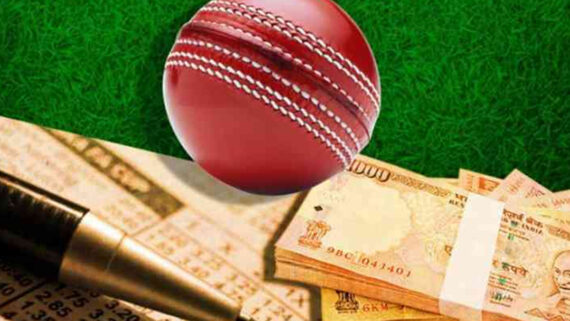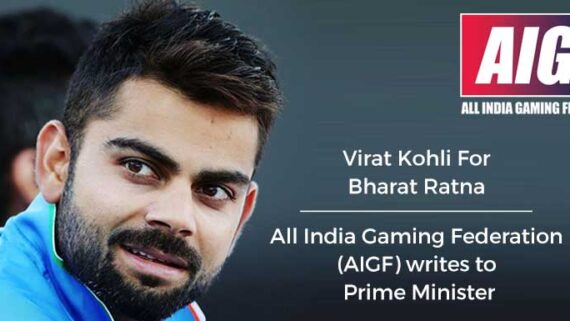‘It’s time to roll the dice above the board’
The All India Gaming Federation has presented a white paper to the National Law Commission in which it proposes the creation of a central gaming and betting law, and also making betting on sports such as cricket legal, both in order to bring it out of the shadows, as well as to earn the government more revenue.
“Right now, how the sector is structured is that gaming is a state subject and every state has a gaming or gambling act that governs what happens in the state, including the betting,” Roland Landers, CEO of the All India Gaming Federation (AIGF) said in an interview following the presentation of the white paper last week. “Sport betting is not allowed in the country. Sikkim and Goa allow casino gaming through a licence, and only in Sikkim can some form of sport betting take place. All other betting is illegal.”
Central Act proposed
“The Law Commission has been given the task to recommend on the gaming industry, so we have made our representations to it,” Mr. Landers added. “What we are proposing as a structure is if we can look at a central online gaming act to bring gaming and betting into a central and licensed product.”
The White Paper, which has been reviewed by The Hindu, says that due to the nature of the Internet and online gaming, it would make best legislative sense if the proposed gaming law is a central enactment for online activities, adding that such a central law will also help with the ‘one-nation, one-tax’ aspect of the Goods and Services Tax regime. However, the Federation also says that brick and mortar gaming set-ups, like casinos, should be under the jurisdiction of the states.
“… Anything that is bricks and mortar or physical gaming, should be in the purview of the states,” Mr. Landers said. “This is because these activities involve tourism, job creation, and revenue for the state. It should be licensed, but being brick and mortar, it should be the states’ call. But because online is so fluid, it makes sense to have a central law.” The amount of money at stake is substantial, with the Federation referring to a FICCI study that pegged the underground betting industry at ₹3 lakh crore in 2013.
“Even assuming that the efforts to legalise the underground betting market is successful in incentivising only half the operators and players to carry on legal betting, the expected turnover will still be ₹150,000 crore,” the white paper said.
‘Huge revenues’
It goes on to calculate that the 3% tax deducted at source of such an amount comes to ₹4,500 crore, and that GST at 18% on the ₹15,000 crore of operator fees comes to ₹2,700 crore. That is a total of ₹7,200 crore from just half the current industry.
“And, since we are talking about giving a licence, you can add the revenue generated from operators procuring licences,” Mr. Landers explained. “Then, if you add the direct tax aspect, where the winnings are taxed, then all of that adds up to a substantial amount.”
Another important issue the Federation is trying to resolve is that varied definitions of what constitutes a skilled game or sport, and their treatment by the various state laws. There are certain games the Supreme Court has deemed to be games of skill, such as online rummy, horse racing, chess, darts, and bridge. Betting on these games is also allowed.
“What we are asking for is that there could be a clear determination of what is skill and what is not skill,” Mr. Landers said.
“Right now, although the Supreme Court says online Rummy is a skill sport, currently Telangana has certain objections to that and have issued an ordinance against it, for example. This varied treatment could lead to chaos for the industry.”
In 1996, the Supreme Court had said that not only is horse racing a game of skill, but betting on it is also a game of skill.
The white paper calls for this treatment to be extended to all other sports, including cricket, arguing that the legalisation of these activities would bring them into the light and also earn the government substantial revenue.
“Even assuming sports betting is not a skill game, for the greater benefit of curbing the existing underground activities and keeping its ill effects at bay, we recommend that sports betting be legalised and brought under a licensing regime,” the white paper said. “In fact, even if one considers sports betting to be akin to ‘gambling’ under the law, it is pertinent to note that the current Gaming Enactments do not prohibit the activity of peer-to-peer betting (with the exception of the States of Orissa and Assam). It is the business of the bookies and betting shops which really fall within the prohibitions. By not regulating such bets, the government is simply losing out on the potential revenue it can make from taxing such transactions.”
“If you see, Justice Lodha has already recommended to the BCCI that they should start cricket betting to stop match fixing,” Mr. Landers added. “That’s actually a remedy for the problem, to do it legally.”
Gaming council pitch
The AIGF has also proposed the creation of a National Gaming Council made up of a cross-section of people from the judiciary, investigative agencies and sport federations, among others.
The body would be the one deciding which are skill-based games and which are not, and the central law would then set down the rules that regulate the skill games.
The white paper calls for ‘responsible gaming’ wherein customers are given a fair and safe experience of gaming, responsible gaming guidelines for the gaming operators are in place to protect gamers from irrational behaviour and addiction, age verification to ensure the gamer is above 18 years of age, and regular audits by the National Gaming Council.
“There is already full KYC for all those who are betting,” Mr. Landers said. “We can track where the money is going and where it is coming from.”






Comments
No comment yet.